Schedule NiFi Data Flow Deployment During Off-Business Hours or on Weekends
![]()
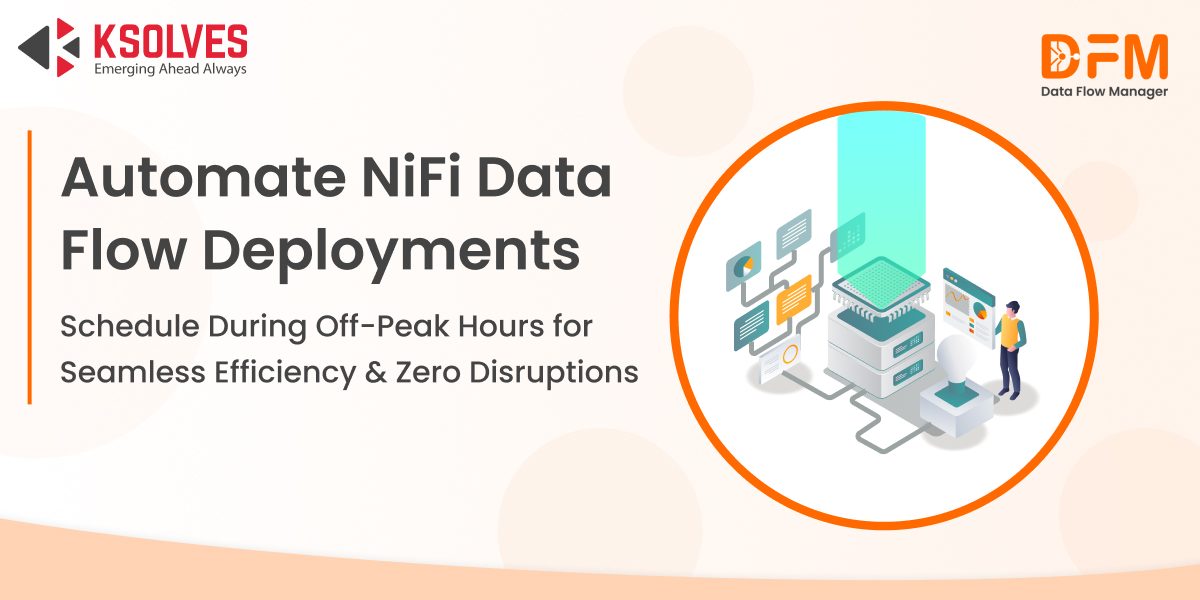
Managing data flows effectively is at the heart of any data-driven organization. Apache NiFi, a robust and scalable data integration tool, enables businesses to move, transform, and process data efficiently.
However, the NiFi data flow deployment process itself is complex. It requires ample time and manual execution, often leading to human errors, operational overhead, and inefficiencies. Data professionals frequently find themselves working after business hours or on weekends just to ensure that deployments do not disrupt live operations.
This is where Data Flow Manager transforms the process. By offering a UI-driven, one-click data flow deployment solution, it eliminates the complexities of manual NiFi flow deployments. But what truly sets it apart is its automated scheduling feature, allowing users to schedule NiFi flow deployments during off-business hours without any manual intervention.
In this blog, let us explore how Data Flow Manager automates data flow deployments with the scheduling feature.
An Overview – Schedule NiFi Flow Deployments with Multi-Level Approval Workflow
Data Flow Manager introduces a powerful scheduling feature that allows users to automate NiFi data flow deployments during off-business hours or weekends. This significantly reduces manual intervention. Also, it ensures seamless execution without disrupting critical business operations.
To maintain governance and control, Data Flow Manager incorporates a multi-level approval workflow. Before a scheduled NiFi flow deployment is executed, it must be reviewed and approved by an administrator or designated approver. If approval is granted, the deployment runs at the pre-defined time; if not, it lapses, requiring rescheduling.
This combination of scheduling flow deployments and structured approval enhances operational efficiency, minimizes errors, optimizes resource utilization, and ensures that only validated deployments go live. With DFM, organizations can streamline their NiFi deployment process while enforcing compliance and security standards.
The Benefits of Scheduling Data Flow Deployments During Off-Business Hours
1. Reducing Manual Effort and IT Workload
Traditional data flow deployments require data professionals to stay available after hours or on weekends, leading to increased workloads and burnout. With automated scheduling, engineers can set up NiFi flow deployments in advance and let the system handle the execution. This frees them to focus on more strategic initiatives.
2. Minimizing Business Disruptions
Deploying NiFi flows during working hours can consume system resources, slowing down ongoing business operations. By scheduling NIFi flow deployments during off-peak hours, businesses can ensure that mission-critical processes remain unaffected.
3. Reducing Operational Costs
Automating data flow deployments eliminates the need for data professionals to work outside business hours, reducing overtime costs and unnecessary resource allocation.
4. Enhancing Business Continuity
By scheduling data flow deployments when business operations are least affected, organizations can maintain higher uptime, prevent workflow disruptions, and improve overall system reliability.
5. Accelerating Time-to-Deployment
With manual intervention removed from the process, organizations can roll out new data flows quickly and efficiently. This ensures faster access to insights and data-driven decisions.
6. Optimizing System Performance
During peak hours, server loads and network traffic are high, which can cause delays or failures in data processing. Scheduled data flow deployments leverage off-business hours when system usage is lower, allowing data flows to execute faster and more efficiently.
7. Strengthening Governance and Control
With Data Flow Manager’s multi-level approval workflow, every scheduled data flow deployment must be reviewed and approved before execution. This ensures that only validated and authorized flows go live, preventing unauthorized changes and maintaining compliance.
How to Schedule a Data Flow Deployment in Data Flow Manager?
To schedule the deployment of a process group:
- Click the Schedule Deployment button on the top-right corner under the Process Groups tab.
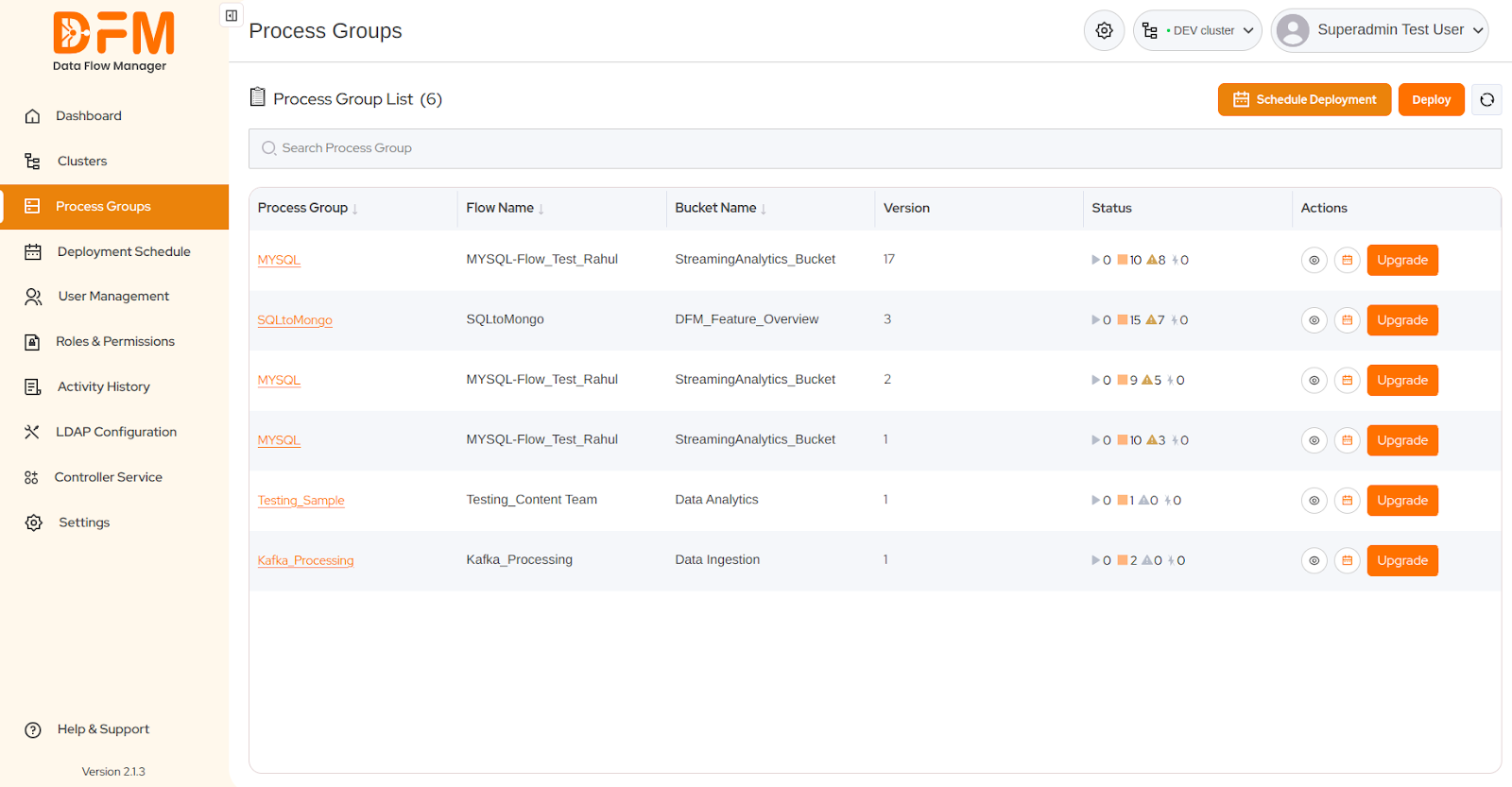
- Next, choose Bucket and Flow Name, and decide whether to keep the existing parameter contexts.
- Choose the flow version and click Continue.
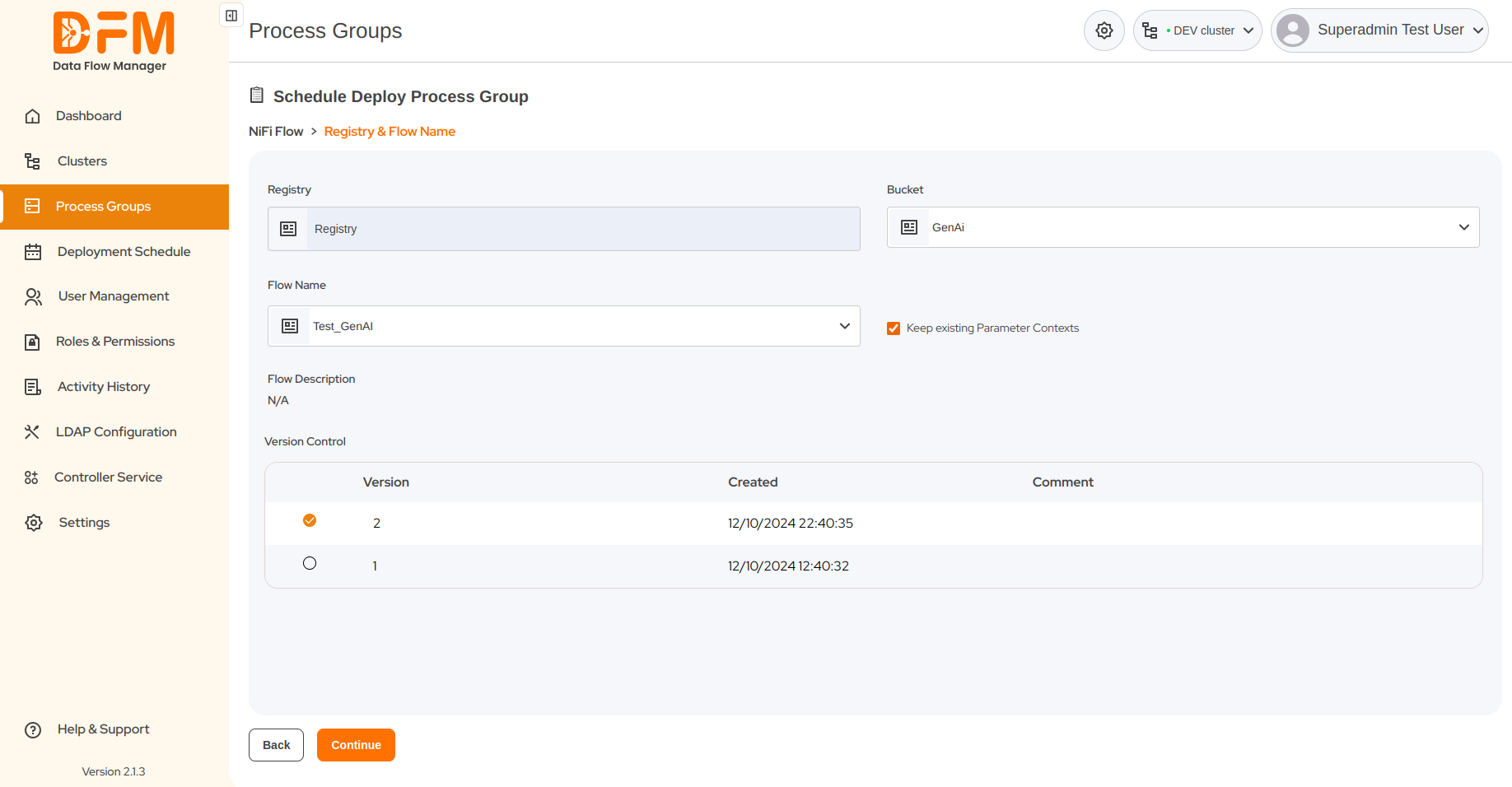
- Set the canvas position for the process group and continue.
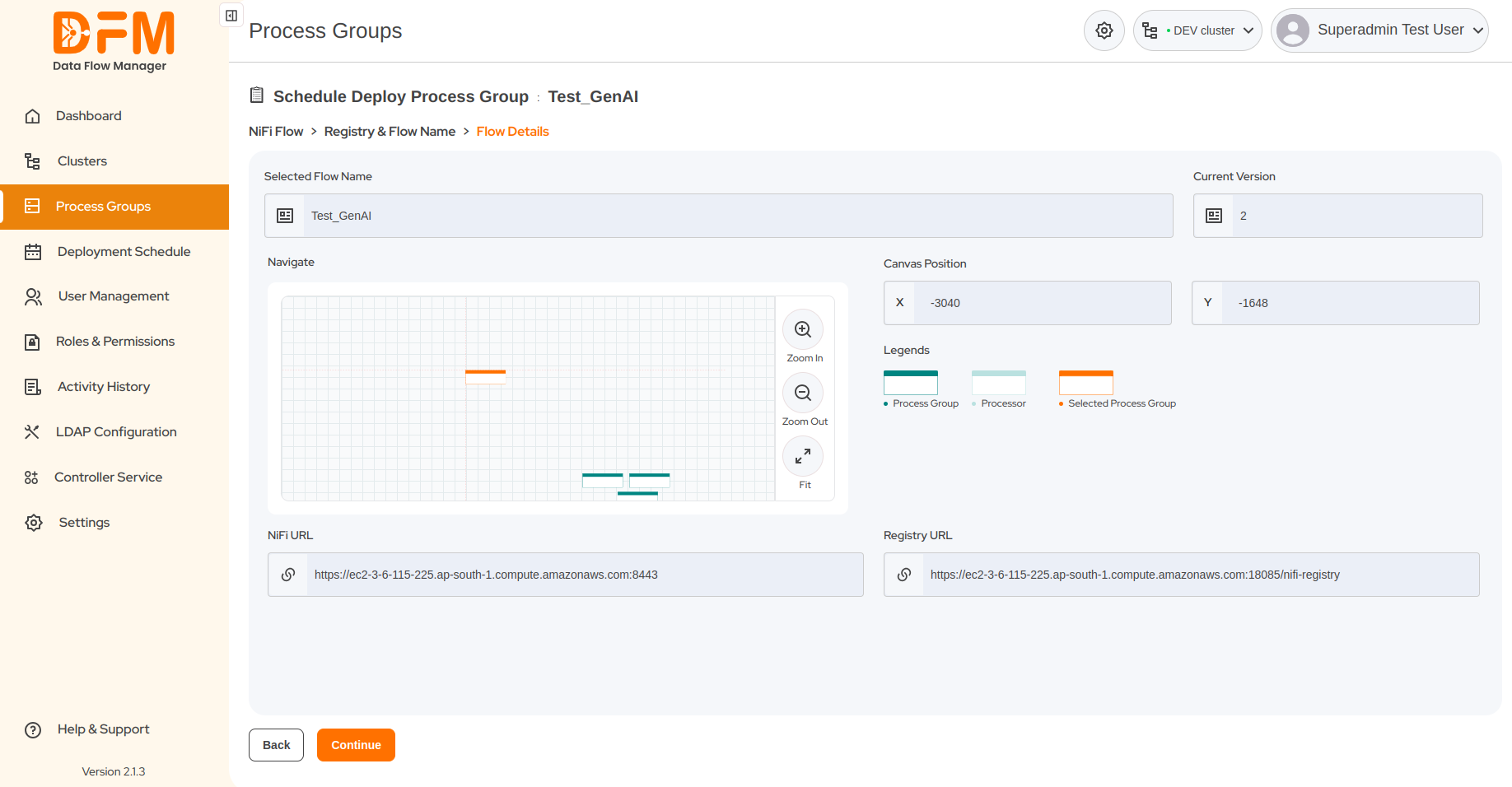
- Now, set the desired deployment time.
- Edit the parameter context and variables and configure the required external controller services.
- Ensure to start the flow and click continue.
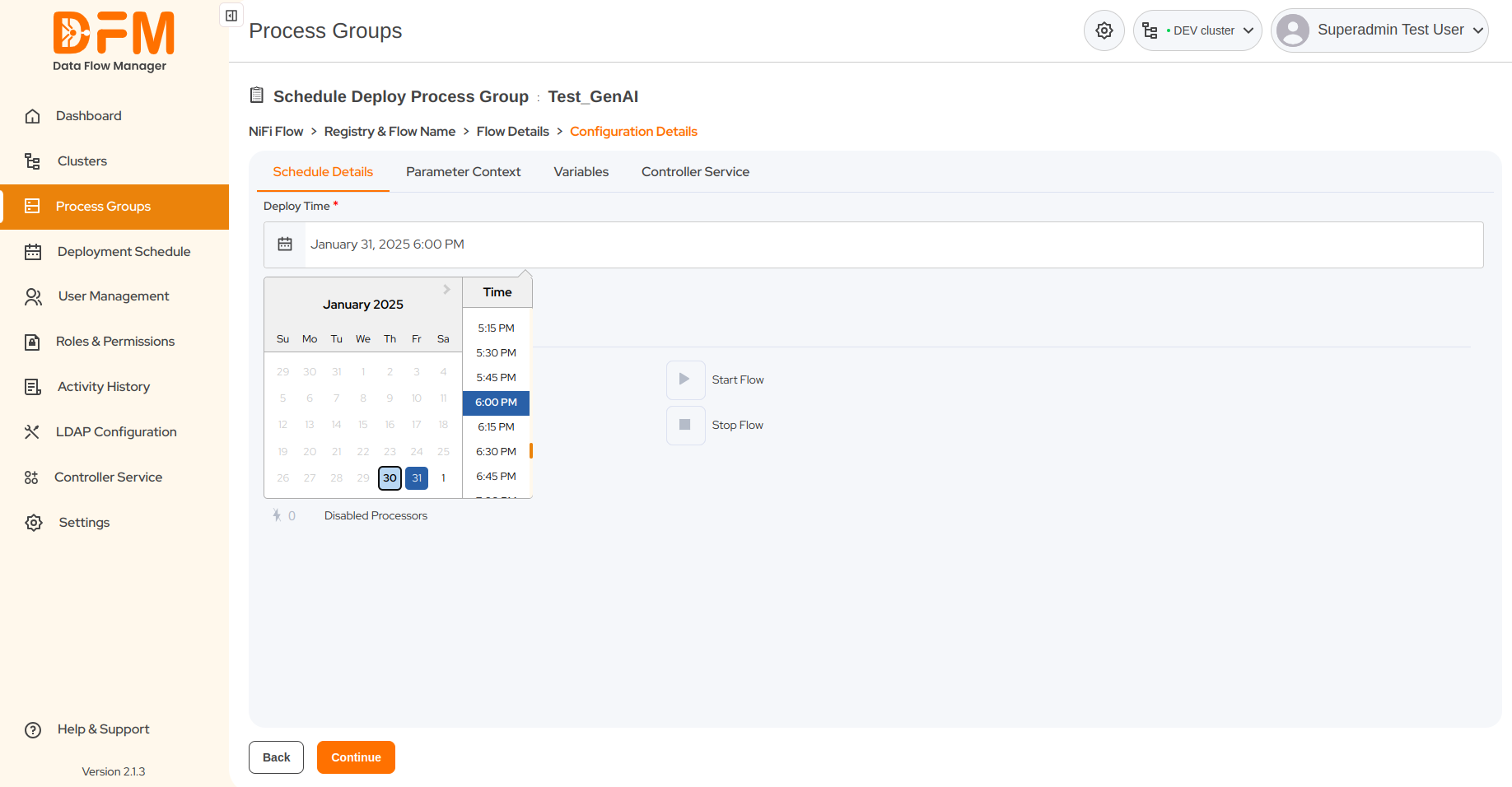 You’ll be redirected to the summary page. Verify the flow details and scheduled time. Click Schedule.
You’ll be redirected to the summary page. Verify the flow details and scheduled time. Click Schedule. 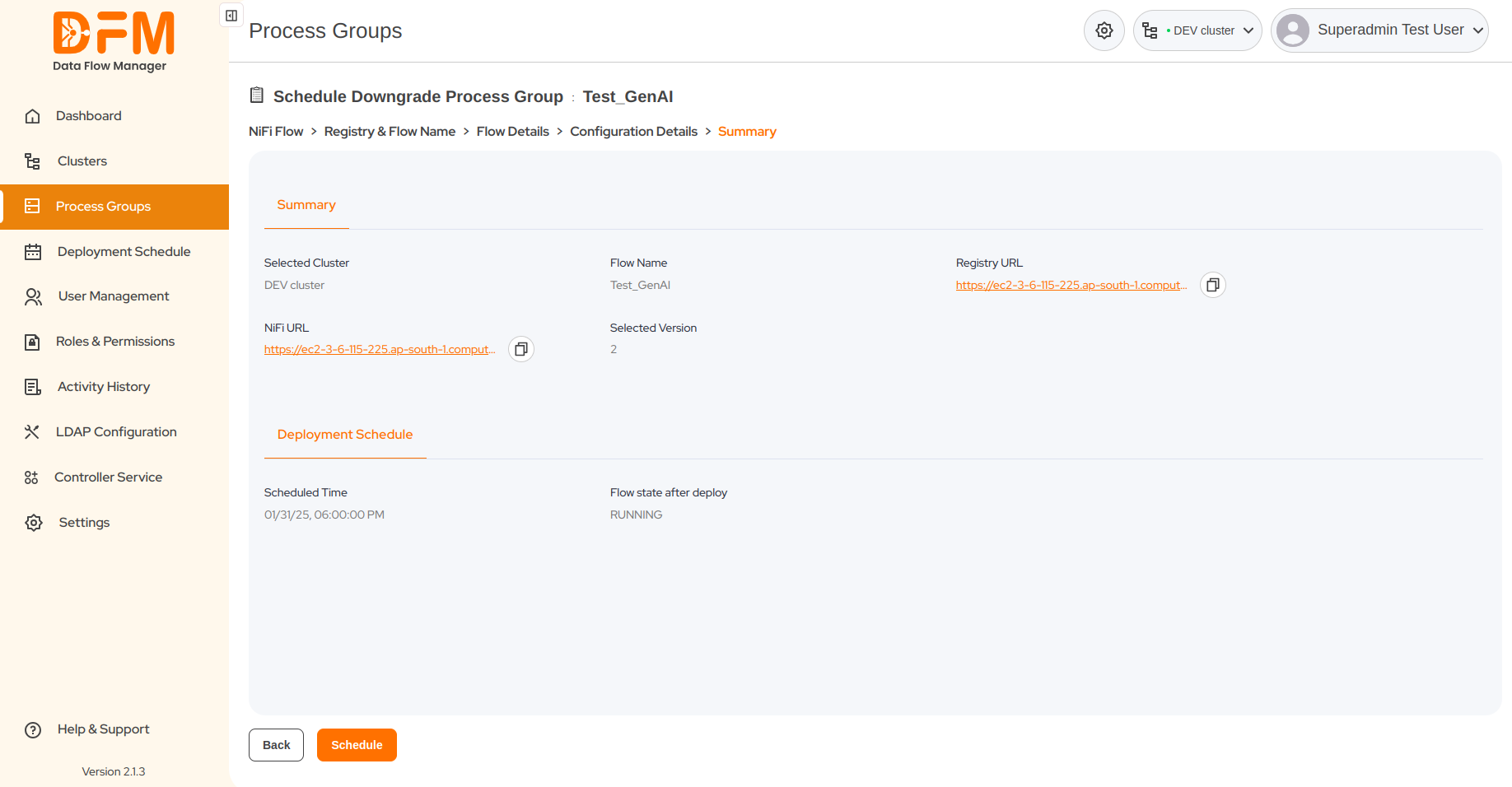
Your process group will be successfully deployed at the scheduled time.
Real-World Applications of Scheduled NiFi Flow Deployments
1. Retail & E-Commerce: Automating Daily Sales Data Processing
Scenario: Large retail and e-commerce businesses collect massive amounts of sales, customer, and inventory data throughout the day. Deploying NiFi flows during business hours could slow down transactions and affect website performance.
Solution: Scheduling data flow deployments overnight or during off-peak hours allows businesses to process daily sales data, update inventory records, and generate reports without impacting live operations.
2. Healthcare: Secure Patient Data Synchronization
Scenario: Hospitals and healthcare providers need to synchronize patient records, lab results, and appointment schedules across multiple systems. Deploying data flows during business hours could lead to data inconsistencies and slow system performance.
Solution: With scheduled deployments, healthcare institutions can sync patient data overnight, ensuring that all systems are up to date before the next working day while maintaining HIPAA and other compliance standards.
3. Telecommunications: Off-Hours Deployment of Network Logs and Usage Data
Scenario: Telecom companies need to process and analyze massive volumes of network traffic logs and customer usage data to optimize performance and detect anomalies. Running these deployments during peak hours can slow down network operations.
Solution: Scheduling data flow deployments late at night ensures timely log processing and analytics, enabling telecom providers to optimize services without affecting customer experience.
4. Government & Public Sector: Data Aggregation for Policy Planning
Scenario: Government agencies collect vast amounts of data from multiple sources for policy-making, citizen services, and security monitoring. Deploying NiFi data flows during the day could slow down systems and cause inefficiencies.
Solution: Automating NiFi deployments during off-business hours allows agencies to aggregate, process, and analyze data efficiently, ensuring accurate insights for decision-making.
Conclusion
Managing NiFi data flows shouldn’t be a time-consuming, manual process. With Data Flow Manager’s scheduled data flow deployment with multi-level approval feature, organizations can:
- Automate deployments efficiently without disrupting business operations.
- Reduce operational costs by eliminating manual after-hours deployments.
- Ensure governance and security through structured approval workflows.
- Enhance overall system performance by running flows during optimal time slots.
Looking to streamline your NiFi flow deployments? Discover the power of Data Flow Manager today! Book a Demo!
![]()